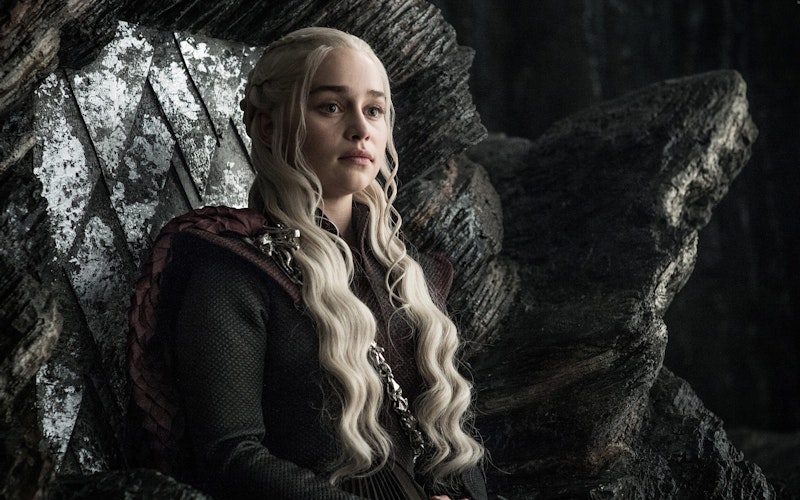
TV
Why I Returned to Game of Thrones
So this is awkward.
A few years ago I declared here at Think Christian that I was giving up on HBO’s Game of Thrones. I had decided the fictional world of Westeros was too unrelentingly bleak and that — when combined with the massive amounts of sex and violence — I didn’t want to spend any more time there.
But I couldn’t stay away. I’m a sucker for a well-told story and whatever faults there are in Game of Thrones, the show is like nothing else on television. It’s the TV version of an open-world video game, where there are dozens of cities to visit and hundreds of people to meet. It has battle scenes that sprint epic, thunderous circles around most summer blockbusters. There are at least six different characters I’ve come to care about, as well as a dozen side characters I enjoy knowing. Despite my reservations, I had to return to Westeros.
And I’m glad I did, for what I didn’t realize three years ago is that Game of Thrones is a slow-burn story. George R. R. Martin, who wrote the books on which the show is based, has a very specific point he’s trying to make about our world, how it works, and what it looks like to be “good” in such a fallen existence.
In its first few seasons, Game of Thrones became notorious for killing off people presumed to be the protagonists. The most noble, well-intentioned heroes of Westeros died tragic and violent deaths. It was easy to read this as a nihilistic vision, in which the world is a terrible place, virtue will always be punished, and corrupt systems of power will always win. To watch seasons 1 through 4 was to be trapped in a constant cycle of “I love this character they seem to be doing well THIS IS GETTING REALLY EXCITING … I … they’re dead.”
But as Game of Thrones enters the final third of its story (there are two seasons left after this Sunday’s season finale), a key theme has emerged: being innocent as a dove is good, but it will get you killed if you don’t learn how to walk with the serpents.
The evil in the world can wreck us or shape us.
Currently there are two leading protagonists: Jon Snow (Kit Harington) and Daenerys (Dany) Targaryen (Emilia Clarke). Dany establishes herself early on as a military force to be reckoned with. Fueled by her hatred of the slave trade, Dany is on a mission to set captives free and take her rightful place as the ruler of Westeros. What Dany has found, however, is that her moral high ground makes for good speeches, but the reality of having to rule involves hard choices, compromise, and the ability to surround yourself with wise counsel.
Likewise, Jon Snow is noble. Just. A great warrior who leads by example. As a reward Jon gets stabbed to death by a mutinous faction that disagrees with his decisions. (Spoiler alert: he gets resurrected … it’s a long story.) Moving forward, Jon has to learn how to keep his moral core, while at the same time not being blind to the messy reality of meeting the world where it’s at and building a coalition of followers.
The world of Westeros is a humbling place that doesn’t offer simple solutions to complex problems. It’s a world that expects its heroes to see that there may be good worth fighting for, but it has to be done with a humble recognition of your own weakness and a wide-eyed awareness of the world’s brokenness.
As I’ve watched this theme emerge, I’ve been surprised by how personally moving it’s been. The older I get, the more the idealistic answers of my 20s have led me to this realization: this world is a very broken place, and I’m very much a part of that brokenness. If I’m to be used by God to bring any hope or redemption to our sad Westeros it won’t be with easy, bumper-sticker answers to complex problems. To borrow a phrase from Henri Nouwen, I’m at best a wounded healer, slowly learning to accept my own failings, seeing them for what they are, diving deeply into the complicated process of internal transformation, and then bringing the slow and nuanced hope of restoration to a world as in need of it as I am.
The more I watch Game of Thrones I see a somewhat similar theme emerging. The evil in the world can wreck us or shape us. And in the real-world Westeros, this is the work of Christians: to embody a hope that can truly shine in the darkness, and not be overcome by it.
Topics: TV